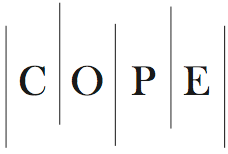About AppliedMath
Aims
AppliedMath (ISSN: 2673-9909) is an international, open access journal that seeks to promote the integration of, and provide an advanced forum for, mathematics with applied disciplines. It is devoted exclusively to the publication of high-quality reviews, regular research papers and short communications that apply mathematical concepts, theories and methods to other subjects such as physics, engineering, medicine, chemistry, biology, information science, energy, environmental science, finance, business, computer science, industry and social sciences. In addition, submissions with a good balance between mathematical analysis and development of application(s) are expected.
Our aim is to encourage scientists to publish their experimental and theoretical results in as much detail as possible. There is no restriction on the maximum length of the papers. The full account of the research must be provided so that results can be reproduced. Electronic files or software that provide the full details of the calculations, proofs and experimental procedures can be deposited as supplementary material (if unable to be published in a normal way).
Scope
- Applied mathematics;
- Algebra and geometry;
- Combinatorics and optimization;
- Differential equations and polynomials;
- Fractional calculus;
- Functional analysis;
- Machine/deep learning and neural networks;
- Number theory;
- Programming and scheduling;
- Statistical distribution and probability;
- Stochastic processes and optimization;
- Time series;
- Integrable systems;
- Asymptotics;
- Numerical analysis;
- Scientific computing.
- Mathematics and physics, including but not limited to:
- Boundary layer theory;
- Combustion;
- Complex flows and soft matter;
- Electrohydrodynamics and magnetohydrodynamics;
- Geophysical flows;
- Granular flows;
- Interfacial and free surface flows;
- Vortex dynamics;
- Elasticity theory;
- Linear and nonlinear wave propagation;
- Nonlinear optics and photonics;
- Inverse problems;
- Applied dynamical systems;
- Nonlinear systems;
- Stochastic differential equations and stochastic dynamics;
- Quantum and field theories;
- General relativity and gravitation;
- Statistical physics;
- Classical mechanics and classical fields;
- Quantum information.
- Mathematics and chemistry, including but not limited to:
- Chemical graph theory;
- Topology;
- Group theory;
- Stereochemistry;
- Quantum chemistry;
- Molecular modeling;
- Supramolecular structures.
- Mathematics and biology, including but not limited to:
- Theoretical biology;
- Computational biology;
- Developmental biology;
- Population dynamics;
- Systems biology;
- Behavioral biology;
- Evolution;
- Epidemiology;
- Mathematics and engineering, including but not limited to:
- Mathematical modeling;
- Mechanical engineering;
- Electrical engineering;
- Applied electromagnetics;
- Fluid mechanics;
- Materials science;
- Image and signal processing;
- Computational intelligence and complexity;
- Environmental engineering;
- Mathematics and information science, including but not limited to:
- Data assimilation;
- Topological data analysis;
- Compression sensing;
- Differential privacy;
- Big data;
- IoT;
- Artificial intelligence technology.
- Mathematics and economics, including but not limited to:
- Insurance mathematics;
- Quantitative insurance economics;
- Pension systems;
- Social insurance;
- Risk-sharing arrangements;
- Quantitative economics;
- Mathematical finance;
- Operations research;
- Quantitative risk management.
- Mathematics and social sciences, including but not limited to:
- Decision science;
- Game theory;
- Social networks;
- Voting rules.
MDPI Publication Ethics Statement
 MDPI is a member of the Committee on Publication Ethics (COPE).
MDPI takes the responsibility to enforce a rigorous peer-review together with strict ethical policies and standards to ensure to add
high quality scientific works to the field of scholarly publication. Unfortunately, cases of plagiarism, data falsification, inappropriate
authorship credit, and the like, do arise. MDPI takes such publishing ethics issues very seriously and our editors are trained to proceed in
such cases with a zero tolerance policy. To verify the originality of content submitted to our journals, we use iThenticate to check submissions against previous publications.
MDPI is a member of the Committee on Publication Ethics (COPE).
MDPI takes the responsibility to enforce a rigorous peer-review together with strict ethical policies and standards to ensure to add
high quality scientific works to the field of scholarly publication. Unfortunately, cases of plagiarism, data falsification, inappropriate
authorship credit, and the like, do arise. MDPI takes such publishing ethics issues very seriously and our editors are trained to proceed in
such cases with a zero tolerance policy. To verify the originality of content submitted to our journals, we use iThenticate to check submissions against previous publications.
Book Reviews
Authors and publishers are encouraged to send review copies of their recent related books to the following address. Received books will be listed as Books Received within the journal's News & Announcements section.
MDPI
Grosspeteranlage 5
CH-4052 Basel
Switzerland
Copyright / Open Access
Articles published in AppliedMath will be Open-Access articles distributed under the terms and conditions of the Creative Commons Attribution License (CC BY). The copyright is retained by the author(s). MDPI will insert the following note at the end of the published text:
Reprints may be ordered. Please contact publisher@mdpi.com for more information on how to order reprints. Announcements regarding academic activities such as conferences are published for free in the News & Announcements section of the journal. Advertisement can be either published or placed on the pertinent website. Contact e-mail address is appliedmath@mdpi.com.Reprints
Announcement and Advertisement
Editorial Office
Contact usFor further MDPI contacts, see here.




